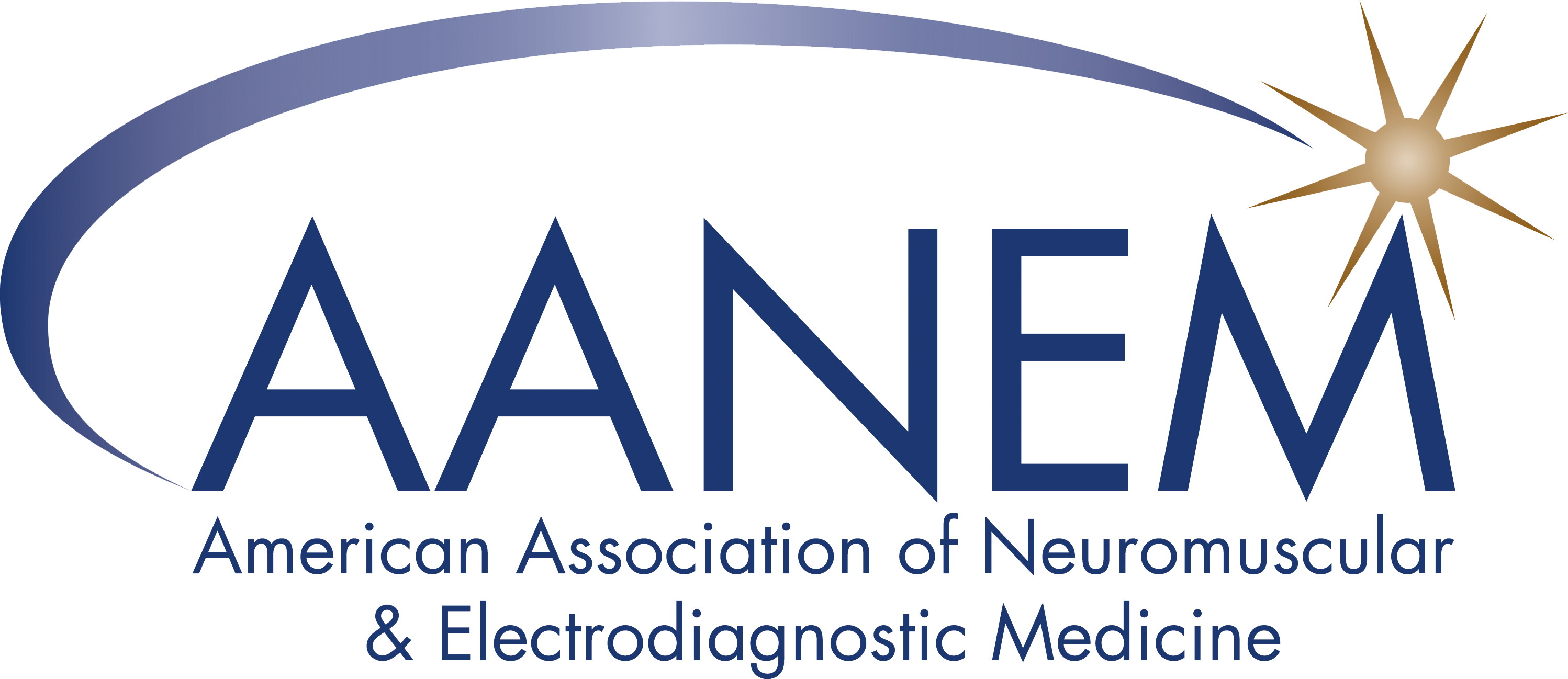Press and Media
View the latest AANEM Achievement Award winners, the American Neuromuscular Foundation (ANF) Abstract Award winners, and the latest AANEM news articles on News Express.
Frequently Asked Questions
Q: When will be content of abstracts be viewable, as opposed to just the titles?
A: The abstract content will be available at the annual meeting during the Poster Hall hours. We do not provide abstract presenter information or slides ahead of time. All available information can be found in the AANEM Abstract Guide online when it becomes available.
Q: How do I reach out to abstract or session presenters for an interview?
A: We do not offer member contact information. To connect with abstract or session presenters, review the AANEM Annual Meeting Program when available. Find the topics of interest and connect with the presenter after their lecture or during their abstract poster session time. Currently there is no interview option for virtual attendees.
Q: When can I share information?
A: The embargo on the abstracts themselves is lifted when they have been published in Muscle & Nerve and online in the AANEM Abstract Guide. However, the additional information beyond what is in the abstract itself is still embargoed.
AANEM requires information that goes beyond that which is contained within the abstract, e.g., the release of data not included in the abstract, discussion of the abstract done as part of a scientific presentation, etc. to be embargoed until the start of the annual meeting. Please see the Abstract Embargo Policy.
Q: Will the Abstract Award Reception feature the best posters?
A: The Abstract Award Reception is a social hour in honor of the abstract award winners where all authors, including award winners, will be available to discuss research.
Q: Original research is ONLY presented as posters, correct?
A: Yes - the research is presented in the Poster Hall via abstract posters.
Science News: Initial Clinical Experience and Outcomes of Ravulizumab in AChR+ gMG
The cohort included 18 patients with a mean age of 61.83 years (±16.08) and a mean Myasthenia Gravis Activities of Daily Living (MG-ADL) score of 5.05 (±3.84). Among 10 complement inhibitor-naive patients, there was a significant reduction in the mean MG-ADL score from 6.6 (±3.58) at baseline to 4.4 (±2.28) post-ravulizumab. Clinically meaningful reductions were observed in 60% of these patients, with 2 achieving minimal symptom expression (MSE).
In the 8 patients who switched from eculizumab to ravulizumab, the mean MG-ADL score decreased from 3.25 (±3.34) at baseline to 1.5 (±2.34) post-ravulizumab. There were 4 patients with baseline MSE status that maintained MSE status post ravulizumab. Out of the 4 patients without baseline MSE status, 2 patients achieved MSE status post ravulizumab therapy whereas the MG-ADL score remained unchanged for the remaining 2 patients.
Additionally, 78.5% (11 out of 14) of patients on prednisone were able to reduce their prednisone dose post-ravulizumab. No major side effects were reported in any of the patients.
Meisel A, Annane D, Vu T, et al. Long-term efficacy and safety of ravulizumab in adults with anti-acetylcholine receptor antibody-positive generalized myasthenia gravis: results from the phase 3 CHAMPION MG open-label extension. J Neurol. 2023;270(8):3862-3875. doi:10.1007/s00415-023-11699-x
